When it comes to city passes and travel cards, it’s usually fairly easy to figure out whether they would be worth it for you or not. For things like the Paris Pass or London Pass, they have a list of the most popular attractions and how much they cost, right there for you to see. The Swiss Travel Pass, however, is shrouded in mystery, or at least it was until I spent several days tracking down all of the prices and benefits.
A great many of the visitors and commenters on my popular page about where to go in Switzerland on a short visit are wondering whether the Swiss Travel Pass is a good deal. Embarrassingly, I’ve always had to answer that I found the pass too confusing to confidently advise people on. Now that has all changed, after literally days of research.
Note: This article was last updated in February, 2024.
Disclosure: This is a reader-supported website and some of the links are affiliate links where a small commission is paid to help keep this site going, but the cost to visitors is the same. The Swiss Travel Pass seems quite expensive at first, so it felt like it might be hard to get your money’s worth out of it. As it turns out, it’s pretty easy to get good value, and it’ll be a good deal for many visitors.
New in 2024
Prices increased an average of 5.9% from 2023 on the Swiss Travel Passes, but the Half Fare Card remains at CHF120, which is where it’s been for many years. Train fares in the country increased by similar percentages so the value is basically unchanged. There were no other notable changes to service or the included attractions and train routes.
>>>Buy the Swiss Travel Pass online
Where to stay in Interlaken and the Lauterbrunnen Valley
Since most people reading this will be visiting the Interlaken area and I get so many questions about it, I decided to write a detailed guide on which area to stay in while visiting this area.
>>>Where to stay in Interlaken or the Lauterbrunnen Valley in Switzerland
I included many huge photos in that post so readers will be able to get a better idea of what each place looks like and they are worth a look by itself.
>>>Lucerne or Interlaken: Which to visit and how long to stay?
The article just above will help you decide on how long to spend in each of Switzerland’s two best tourist areas.
Are you 100% sure where you want to go in Switzerland? This should help
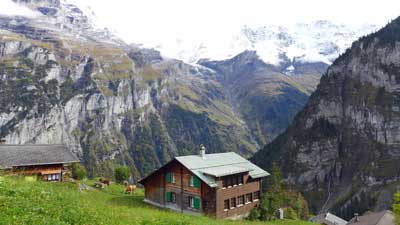
Zurich and Geneva are pleasant but dull. The good news is that Switzerland is packed with amazing sights and none of them are the big cities. If you aren’t 100% locked in yet, please read the article below and I think you’ll enjoy it.
Is the Swiss Travel Pass a good deal? Here's the short version

The bottom line is that the scenery, train journeys, and cable car rides in Switzerland are stunning and not found anywhere else in the world. They are also quite expensive if you pay for them one at a time. So no matter how you visit Switzerland, you are going to be paying quite a bit, or skipping the absolute best things that you’ve come there to see.
With good planning it’s quite easy to get great value out of a Swiss Travel Pass, but it might be a poor choice for those who don’t like to plan ahead. You can easily do a scenic train ride and a cable car in the same day, and still have time to do a scenic hike in the process.
First class or second class? Good news for most people
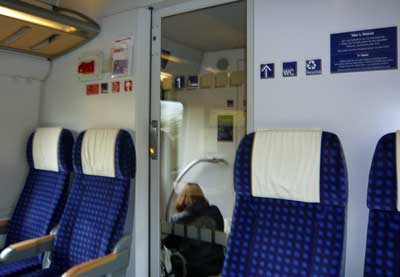
That said, Swiss Trains are literally the nicest in Europe and even the Second Class seats and carriages are nicer and roomier than trains in neighboring countries. The First Class seats are larger and nicer with only 3 across the cabin instead of 4, but honestly Second Class is perfectly comfortable for almost everyone.
Again, First Class on European trains like this is generally popular with business travelers where the company is paying and they need to get work done during the ride, and also senior citizens who don’t want to worry about a carriage full of backpackers. For most of the rest of us, Second Class is more than comfortable enough and the seat width and legroom compare to business-class airline seats. I’m a big and tall guy and I almost always travel in Second because it’s plenty comfortable enough and all the seats arrive at the same time anyway.
The longer you'll be in Switzerland, the better deal a Swiss Travel Pass will be
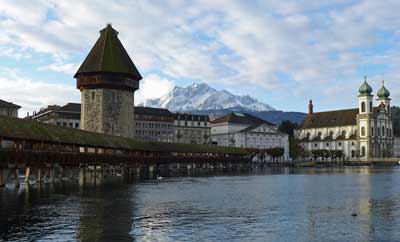
In other words, if you are staying 5 days or fewer, you have to do the math to determine your best option. But if you are spending even 6 or 7 days in Switzerland then the 6-day or 8-day Pass is almost guaranteed to be a great deal and your best choice. Once you have a Swiss Travel Pass you’ll absolutely love the ability to just hop on any train (excellent trains, always on time) and most boats and cable cars without having to worry about the cost. The per-day cost of an 8-day Pass even if you only use 6 of those days is about CHF65, and Switzerland is filled with amazing train rides and boats and cable cars that can get you that much value before noon each day.
Schilthorn (50% discount) and Jungfraujoch (25% discount) are cheaper with a Swiss Travel Pass
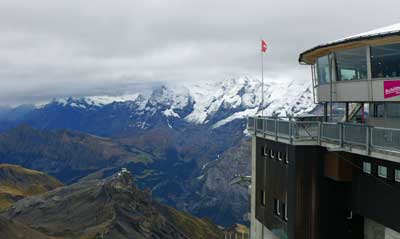
Both of those peak experiences are extraordinary and different from each other. Even so, compared to Jungfraujoch, Schilthorn is also faster and more comfortable on the way up and down. You can enjoy an excellent visit to Schilthorn in 4 hours or so (or a bit longer if you eat at the spinning Piz Gloria restaurant at the top), while a visit to Jungfraujoch requires closer to 6 hours.
NOTE: Schilthorn closes for maintenance for a week or two in late November most years.
Consider the Swiss Half-Fare Card instead
If you AREN’T going to be doing two or more of the long (and expensive) scenic train trips, you will get much better value out of the Swiss Half-Fare Card, which is explained a bit below.
Mt Rigi, near Lucerne, is 100% covered by the Swiss Travel Pass
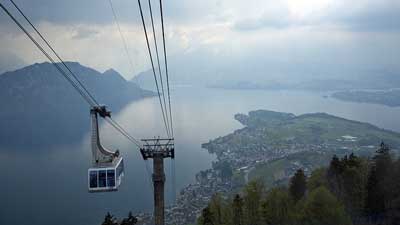
Is a Swiss Travel Pass right for you?
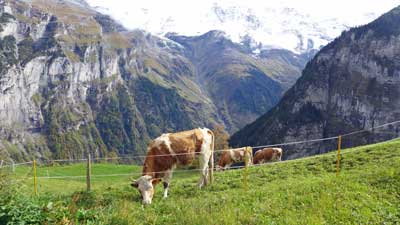
Most people only visit Switzerland for 5 or 6 days at most, so the 3-day and 4-day passes are the ones to focus on. But if you are staying for 8 days or more, those longer passes are almost certainly a great deal for you.
Long story short, if you plan on doing 2 of the more expensive scenic trains and the Jungfraujoch railway or the Schilthorn cable car, then the pass will save you money. Switzerland is expensive, but it’s worth it, and the travel pass can help make it a bit more affordable.
What the Swiss Travel Pass includes
- Free rail travel on normal trains and most scenic trains
- Discounted travel (about 50%) on popular tourist mountain trains
- Discounted travel (about 50%) on popular tourist cable cars
- Free travel on public transport in 75 towns and cities
- Free entry to around 500 museums in Switzerland
The Swiss Travel Pass covers the fare on the most popular scenic and panoramic trains. You can choose a normal seat in a regular carriage for no additional cost, but there is a supplement of CHF8 to CHF49 for a reserved seat in one of the special panorama carriages on these routes.
Prices of the 2024 Swiss Travel Pass
1st Class
- Adult 3-day Pass: CHF389
- Youth (4 to 25) 3-day Pass: 274
- Adult 4-day Pass: 469
- Youth (4 to 25) 4-day Pass: 330
- Adult 6-day Pass: 602
- Youth (4 to 25) 6-day Pass: 424
- Adult 8-day Pass: 655
- Youth (4 to 25) 8-day Pass: 469
- Adult 15-day Pass: 723
- Youth (4 to 25) 15-day Pass: 512
2nd Class
- Adult 3-day Pass: CHF244
- Youth (4 to 25) 3-day Pass: 172
- Adult 4-day Pass: 295
- Youth (16 to 25) 4-day Pass: 209
- Adult 6-day Pass: 379
- Youth (16 to 25) 6-day Pass: 268
- Adult 8-day Pass: 419
- Youth (16 to 25) 8-day Pass: 297
- Adult 15-day Pass: 459
- Youth (16 to 25) 15-day Pass: 328
Swiss Travel Pass Flex
This version costs a bit more, but you don’t have to use the travel days consecutively. It’s a great option for anyone who won’t be taking longer train rides each day.
- Adult 3 Flex days in 1 month (1st Class): CHF445
- Adult 3 Flex days in 1 month (2nd Class): 279
- Adult 4 Flex days in 1 month (1st Class): 539
- Adult 4 Flex days in 1 month (2nd Class): 339
- Adult 6 Flex days in 1 month (1st Class): 644
- Adult 6 Flex days in 1 month (2nd Class): 405
- Adult 8 Flex days in 1 month (1st Class): 697
- Adult 8 Flex days in 1 month (2nd Class): 439
- Adult 15 Flex days in 1 month (1st Class): 755
- Adult 15 Flex days in 1 month (2nd Class): 472
Where to buy the Swiss Travel Pass
The Swiss Half-Fare Card – A better option for many visitors
Far less confusing than the Swiss Travel Pass, you can instead get a Swiss Half-Fare Card, and it will be a better deal for many travelers. The price is lower and it’s much easier to do the math, and the discounts are greater on some things as well.
- Swiss Half-Fare Card for 30 days: Adults – CHF120 or US$129
What you get:
Those who buy the Swiss Half-Fare Card will get 50% discount on all trains, buses, and boats in Switzerland for up to 30 days, as well as 50% off all public transportation in 75 cities and towns.
>>>Buy the Swiss Half-Fare Card
Why the Half-Fare Card is a better deal for many
While the Swiss Travel Pass is a great deal for those doing many of the expensive scenic journeys and mountain sights within a few days, it’s not good value for those who are doing fewer of the expensive trips and/or those who are staying longer. Also, the Swiss Travel Pass only provides a 25% discount on the amazing Jungfraujoch Railway, which costs between CHF120 and CHF224 return depending on your starting point, while the Half-Fare Card provides a 50% discount.
The math is simple as well. You can just add up the cost of the trains, boats, and buses you’ll be taking while in Switzerland, and if the total is more than CHF240 or so, the Half-Fare Card will save you money.
Example itinerary:
- Zurich to Interlaken train (2nd Class): CHF50
- Schilthorn Cable Car: CHF112
- Jungfraujoch railway from Interlaken: CHF205
- Interlaken to Lucerne train (2nd Class): CHF33
- Mt Rigi roundtrip from Lucerne: CHF84
- Engelberg (near Lucerne) to Mt. Titlis Cable Car: CHF92
- Lucerne to Zurich train (2nd Class): CHF25
Total per person: CHF601
Total with Half-Fare Card (including price of card): CHF420.50
It would be tough to do all of those things in 4 days, although it is possible. If you bought a 4-day Swiss Travel Pass here is how it adds up:
4-Day Swiss Travel Pass: CHF259
Supplements for Schilthorn, Jungfraujoch, and Mt. Titlis: CHF203.25
Total cost: CHF462.25
Bottom line on the Swiss Half-Fare Card
Since the Half-Fare Card lasts 30 days and provides a larger discount on Jungfraujoch, it is better value for visitors who want to include that scenic top-of-Europe rail journey on their trip. The discounts also add up more quickly on Schilthorn and Mt. Titlis trips, just to name two examples, and you don’t have to take many longer rail journeys to get value out of the Half-Fare Card.
Swiss Saver Day Pass (A one-day unlimited travel pass)
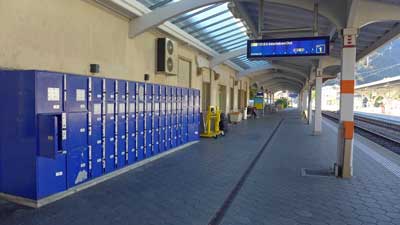
If you buy the Saver Day Pass at least 21 days in advance (and up to 60 days in advance) the 2023 cost is:
- 2nd Class (with Half Fare Card): CHF29
- 1st Class (with Half Fare Card): CHF82
- 2nd Class (with no Half Fare Card): CHF52
- 1st Class (with no Half Fare Card): CHF97
Once you research the normal cost of Swiss train fares you’ll see that the above prices are a very good deal for anyone riding more than 150 kilometers or so in a day. If you are just going, for example, from Zurich to Lucerne or Interlaken on a day, it’ll be cheaper to just buy that ticket individually. But if you are going from Geneva or Montreux to Interlaken or Lucerne then the Saver Day Pass will be much cheaper. Better still, you can use a Saver Day Pass to go from Interlaken to Geneva and back on the same day on the Goldenpass line and returning on the faster train through Bern, and it will still all be included for free.
If you don’t buy a Saver Day Pass at least 14 days in advance it’s more expensive, and if you only buy 1 to 3 days in advance it’s VERY expensive, so the key is to buy early. This is all confusing, but the Saver Day Pass should be a great option for many people only in Switzerland for one to three days.
Popular Swiss panorama scenic trains
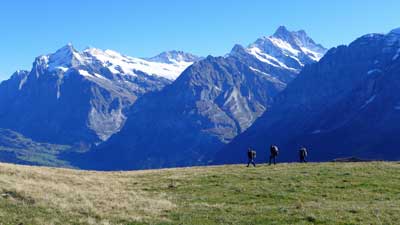
- Glacier Express
- Route: Zermatt to St. Moritz
- Train type: Panorama
- Journey time: 8 hours 3 minutes
- Distance: 291km
- 1st Class fare: CHF272
- 2nd Class fare: CHF159
- Compulsory seat reservation fee: CHF44 or 49
- Supplement for Swiss Pass holders: 13 to 33 for panorama carriage
- Bernina Express
- Route: Chur to Tirano and Lugano
- Train type: Panorama and bus
- Journey time: 4 hours 13 minutes and 3 hours 10 minutes
- Distance: 148km and 90km
- 1st Class fare: CHF113
- 2nd Class fare: CHF66
- Compulsory seat reservation fee: CHF32
- Supplement for Swiss Pass holders: 10 to 14 for panorama carriage
- GoldenPass Line
- Route: Lucerne to Montreaux
- Train type: Panorama
- Journey time: 5 hours 8 minutes
- Distance: 191 km
- Prestige Class fare: CHF131
- 1st Class fare: CHF96
- 2nd Class fare: CHF56
- Supplement for Swiss Pass holders: 8 to 15 for panorama carriage
- Gotthard Panorama Express (formerly Wilhelm Tell Express)
- Route: Lugano or Locarno to Lucerne
- Train type: Panorama and boat
- Journey time: 5 hours 21 minutes
- Distance: 182 km
- 1st Class fare: CHF164
- 2nd Class fare: CHF135
- Supplement for Swiss Pass holders: 39 to 49 for panorama carriage
- Swiss Chocolate Train
- Route: Montreux to Broc round trip
- Train type: Panorama or First Class
- Journey time: X hours X minutes
- Distance: 82 km
- 1st Class fare: CHF99
- 2nd Class fare: 89
- Supplement for Swiss Pass holders: 39
Popular Swiss scenic and theme trains
The scenic trains below are also extremely popular as sightseeing journeys rather than just as transportation, but can be used as both.
- Jungfraujoch round trip
- Route: Interlaken to Jungfraujoch
- Train type: special mountain train
- Journey time: 4 hours 41 minutes, round trip, plus time on top
- Distance: 73 km
- 1st Class fare: N/A
- 2nd Class fare: CHF224
- Supplement for Swiss Pass holders: 147 (so, a saving of CHF77)
- Gornergrat Railway
- Route: Gornergrat Railway
- Train type: Cog railway
- Journey time: 44 minutes return
- Distance: 10 km
- 1st Class fare: N/A
- 2nd Class fare: CHF90
- Supplement for Swiss Pass holders: 45
- Rigi round trip
- Route: Lucerne to Rigi
- Train type: Cog railway
- Journey time: 3 hours 25 minutes, plus time at the top
- Distance: 58 km
- 2nd Class fare: CHF78
- Supplement for Swiss Pass holders: None (this one is free with the pass)
- Mt Rigi Excursion (one-way and walk down)
- Route: Lucerne to Mt Rigi
- Train type: cogwheel train and/or cable car
- Journey time: 45 minutes up
- 1st Class fare: N/A
- 2nd Class fare: 49
- Supplement for Swiss Pass holders: 0
- Lotschberg Mountain Route and Centrovalli
- Route: Bern to Locarno
- Train type: Narrow gauge
- Journey time: 4 hours 40 minutes
- Distance: 212 km
- 1st Class fare: CHF158
- 2nd Class fare: CHF90
- Supplement for Swiss Pass holders: 5
- Jura round trip (Watchmaking Tour)
- Route: Neuchatel through Jura
- Train type: Regular
- Journey time: 3 hours 0 minutes
- Distance: 143 km
- 1st Class fare: CHF168
- 2nd Class fare: CHF108
- Supplement for Swiss Pass holders: 0
- Pre-Alpine Express
- Route: St. Gallen to Lucerne
- Train type: Regular
- Journey time: 2 hours 15 minutes
- Distance: 146 km
- 1st Class fare: CHF83
- 2nd Class fare: CHF47
- Supplement for Swiss Pass holders: 0
- Jura Foot Line
- Route: Basel to Geneva
- Train type: Regular
- Journey time: 2 hours 40 minutes
- Distance: 248 km
- 1st Class fare: CHF132
- 2nd Class fare: CHF75
- Supplement for Swiss Pass holders: 0
Popular Switzerland cable car rides
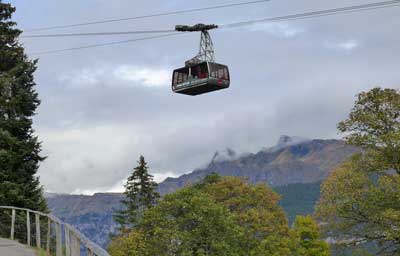
- Schilthorn
- Route: Stechelberg (Lauterbrunnen) to Schilthorn
- Train type: cable car
- Journey time: 1 hour
- 2nd Class fare: CHF108
- Supplement for Swiss Pass holders: 54
- Engelberg to Mt. Titlis cable car
- Route: Engelberg to Mt. Titlis
- Train type: cable car
- 2nd Class fare: CHF96
- Supplement for Swiss Pass holders: 46
The Swiss Travel Pass also includes free museum admission, but…
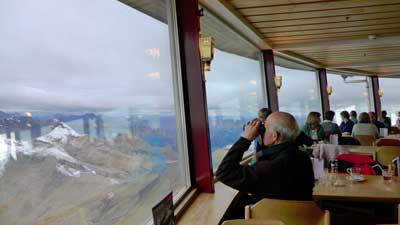
The problem is that the museums are only free on valid travel days, and almost no one would visit more than one or two museums with a Swiss Travel Pass. The trains and cable cars are so expensive that the pass gives very good value to cover those, so you don’t want to waste precious sightseeing time walking through a museum that only costs CHF10 anyway.
In other words, calculate the value of a Swiss Travel Pass on the travel savings only, and if you visit a museum here or there, then great. Most people are better off trying to squeeze in an additional train ride each day, and ignoring the museums. Switzerland is all about the outdoor scenery. As nice as the museums may be, they are not why you are there.
The pass includes free public transport in most Swiss cities
Similar to the free museum part of the offer, it’s best to ignore or minimize the value of free public transportation. It could be helpful in Zurich, but in most other Swiss tourist towns you won’t need much public transport. In fact, in Interlaken, each hotel or hostel guest automatically gets a card for free public transportation within the town (including between the two train stations).
So you might use a ride or two each day on public transport, but that won’t add up to much in terms of value of your Swiss Travel Pass.

Hi Roger
Me and my family ( total of 4 people ) will be travelling from Paris to Switzerland for 4 nights. We plan to be around Interlaken and surrounding areas.We spend 4 nights in Paris before that.In Switzerland we plan to visit Jungfraujoch and take maybe 2 scenic trains. Our return flight is again from Paris, where we stay for a night on return.
Does it make sense to buy a France/Switzerland travel pass or just a Half Fare Swiss Card.
Sumeet,
It would depend on which scenic train journeys you were also going to take. Some of them are quite expensive so using a Swiss Travel Pass to pay for them can save a lot of money. But others, such as the GoldenPass portion between Lucerne and Interlaken, are fairly cheap. My hunch is that the Half Fare Card would be your best bet, especially with the deeper discount on Jungfraujoch. But if you are going to do some longer and more expensive train trips on those other days, the Swiss Travel Pass might be better. Let me know if you have any other questions. -Roger
Hi Roger … your post seems really useful and nice and very elaborate !!
Iam planning to travel to switzerland with my husband from 16-18th december from paris . My paln decided as of now is as follows :
Day 1 : reach zurich HB from Paris , take a train to lucern
Take boat ride in lake and go up to Mt rigi / pilatus
spend remaining time in luzern and stay overnight there.
Day 2 : taking the Golden pass scenic train to Interlaken and then go up to jungfrau mountain then spent some time left in interlaken and take a normal train back to luzern ( hotel in luzern only )
Day 3 : Take the train to eldengerg and go up to Mt titlis and enjoy the time there doing activities like ice flyer etc.
Come back to luzern and enjoy there and take the train to zurich airport at night for a flight back to paris
Please suggest we should take a Swiss pass or Half Fare pass or shud take indivisual tickets ??
Thanks in advance !!
Aanchal,
The Swiss Travel Pass is great value for those taking two or more longer train journeys. In your case, all of your train rides will be fairly short, including the one from Lucern to Interlaken and back. And with the 50% discount for Jungfraujoch rather than the 25% discount with a Swiss Travel Pass, I think the Half Fare Card will save you more money. It looks like a great trip and hopefully you’ll get lucky with the weather when you are going up those peaks. -Roger
Hi Roger,
Here is the revised itinerary.It seems like Swiss travel pass makes sense.Just wanted to get your opinion on it too.
Day 0:ZRH airport to Lucern.Nothing planned on arrival day.
Day 1: Lucern, Regis or pilatus and stay local
Day 2: Lucern to mt titlis, Engelberg and back
Day 3: Lucern to Interlaken and rest day
Day 4: interlaken to schilthorn,murren,gimmelwald and back to interlaken
Day 5: interlaken to jungfrauoch,lauterbrunnen,wengen and back to interlaken
Day6: Interlaken to Montreux by golden pass train, overnight stay in Montreux
Day 7: Castle sighseeing and other local attractions and Montreux to Zurich (evening)
Day 8: fly out of ZRH airport
Please suggest if you think Swiss travel pass makes sense for us.Also how does the revised itinerary look?
Thanks
Thank you so much Roger.You have been so helpful
Hi,
Thank you so much for your suggestion.You suggestion makes a lot more sense to visit lucerne first and then move onto interlaken area.I am also thinking of skipping matterhorn like you suggested.One more follow up question.for families what would you suggest as a better base in the interlaken area.Interlaken, wengen or lauterbrunnen?.It seems like they are very close to each other but wengen sems to be a lot more scenic.What would you suggest?
Thanks
Vin,
Wengen and Lauterbrunnen are both small villages that are extremely scenic and it would be hard to choose between them. Both of them also have a convenient Coop supermarket right by the train station. You’ll be amazed by the scenery of both of them. The downside for those is that each of them has a relatively small number of restaurants and food choices. If you aren’t a picky eater and don’t mind paying high prices for at least some of your meals, then either one would be great.
Interlaken is also scenic, but it’s spread over a wide valley and so the hotel areas don’t look like they belong on postcards, even though they are nice. The advantage of Interlaken itself is that you have scores of restaurant choices, including some cheaper fast-food options. One alarming thing about Switzerland is that a sit-down meal in any restaurant will start at around US$20 and go up from there. But you can get shwarma or burgers for closer to US$10 at snack bar places. On the other hand, the Coop supermarkets also have prepared sandwiches and salads and that sort of thing starting around US$5 each. Interlaken is also most of a rail hub, while the other two are hubs for the tourist trains that run deep in the valley. Hopefully with this information you can make a decision. As long as you find a hotel that you like at a decent price, you should be happy in any of them. -Roger
Hi,
We will be in switzerland for 8 days flying in on Jul 27 and flying out of ZRH on Aug 4.We are a family of 2 adults and 2 kids (ages 3 and 8)
Here is our itinerary and the days are interchangeable
Day 0:ZRH airport to interlaken.Nohting planned on arrival day.
Day 1: interlaken to junfrauoch,lauterbrunnen,wengen and back to interlaken
Day 2: interlaken to matterhorn and zermatt and back to interlaken
Day 3: interlaken to lucerne and back to interlaken
Day 4: interlaken to schilthorn,murren,gimmelwald and back to interlaken
Day 5: interlaken to mt titlis 1 and back to interlaken
Day6: Interlaken to Montreux, overnight stay in Montreux
Day 7: Montreux to Zurich
Day 8: fly out of ZRH airport
Given this, do you think any of the swiss travel passes or half fare pass make sense?.Also any suggestions on the itinerary are also welcome.
Thanks
Vin,
This looks like quite a trip. The way you are planning it I think the full Swiss Travel Pass would make more sense, but if you changed it a bit the Half Fare Card might be better. I can see the appeal of spending more of your time in one place in the Interlaken area, especially with young children. Still, that also has you on trains pretty much every day, and young children might find that to be more of a hassle than moving hotels one more time. What I’d recommend is the following…
Go from Zurich Airport to Lucerne first and stay for two nights. Lucerne is actually a much nicer and more scenic town than Interlaken, although the scenery around Interlaken is far more dramatic. You could enjoy Lucerne and then go to Titlis on your full day there.
Then take the train from Lucerne to Interlaken (or at least that area) and do Jungfraujoch and Schilthorn as your main activities. If you dedicate a full day to each of them, you’ll end up visiting all of those other nearby places along the way. The trip from Interlaken to Zermatt to see the Matterhorn is a full day trip. As dramatic as the views of the Matterhorn are, that is a long and fairly expensive day trip, and the Interlaken area has much more to see. In fact, Lucerne has several more nearby peaks (Rigi and Pilatus) that aren’t as tall or iconic as the Matterhorn, but they are also great and much easier to visit if you stay another day in Lucerne. It’s just something else to think about.
The train ride from Interlaken to Montreux is wonderful, especially if you take the slower GoldenPass route. If you kept that ride and the ride back to the Zurich Airport then the Swiss Rail Pass might still be the best choice. You’d have to go to the Swiss Rail website and add up the numbers. The domestic rail tickets within Switzerland are all on fixed prices so it’s easy to check them and add up the totals with the Half Fare Card and with the Swiss Rail Pass. I hope this helps. Let me know if you have any other questions. -Roger
Hi Roger,
Thank you for the swift reply and thoughts on Zurich. Your response has helped ensure we have planned our itinerary as best we can and that we do not need to go on the scenic ride (glacier express) as we will see a lot of scenery on the stops we have planned.
Thanks again.
Dinny
Hi Roger,
The information in this post is awesome, thank you. I have been reviewing it daily whilst trying to plan on what to do in Switzerland and how. I will be travelling to Switzerland in January 2018 with my family (2 adults, 2 kids 10 & 8)and am wondering what pass to purchase and what to see. We have booked hotels and have come up with the below itinerary:
3rd Jan – Fly London to Zurich (arrive in Zurich 09.30), take train to Lucerne.
3rd-5th – Stay Lucerne (2 nights) and thinking of doing lake cruise/lion monument. 2nd day do Mount Pilatus.
5th-8th – leave Lucerne (morning), take train to Interlaken (stay 3 nights) and thinking of doing Jungfraujoch 1 day, Schilthorn 1 day and half day trip to Grindelwald.
8th-10th – leave Interlaken by train (morning) and head to Zermatt (2 nights). Thinking of doing the Matterhorn Glacier Paradise and skiing for beginners. Is it worth doing the Glacier Express?
10th – leave Zermatt (morning) to catch a flight from Zurich to London departing at 4.35PM.
Can you advise if it is worth getting the full or half day pass? Would also appreciate your thoughts on planned trips in the itinerary and if there is any thing different you would suggest we do.
Whilst in Zurich, and if we have time is there anything you could suggest or recommend we visit?
Look forward to hearing from you. Thank you in advance.
Dinny
Dinny,
I’m happy to hear that this helps. The main Swiss Travel Pass is really helpful and economical for people who are doing a lot of train travel in Switzerland, and especially the longer scenic train rides. Since it appears that you are mostly just going point to point on the trains, and not any of the main branded scenic trains (even though every train ride you’ll be doing is very scenic), I think the Half Fare Card will save you the most money. It will get you that discount on pretty much everything on your list for a much lower price than the Swiss Travel Pass. If you add the Glacier Express then the Swiss Travel Pass makes more sense, but to go all the way to St. Moritz it takes almost 8 hours each way so I really don’t think you’ll have the time.
Your itinerary looks quite good. If you added the Glacier Express you’d also be doing some backtracking. If you had at least one extra day I’m sure you’d love that ride. On the other hand, as I mentioned, you’ll already be seeing many of the most scenic parts of Switzerland just going between the stops you have in mind, so it wouldn’t be quite as special. I think those scenic rides are best for people who don’t have much time to spend in the destinations, and who want to see the scenery quickly.
As for Zurich, I think I would skip it if I were you. It’s a nice (and very expensive) city, but there are no major highlights, and the scenery in the countryside is so amazing that spending a few hours in Zurich would be a bit of a let down. As always, let me know if you have any other questions. -Roger
Hello Roger,
Thank you so much for sharing all this great information! It’s very helpful!!!
I will be in Switzerland from 12/21 – 12/24th – i know this is a very short trip but I would love to get your advice on my itinerary!
Day 1: Zurich airport to Bern
Day 2: Bern – Interlaken – Jungfrau
Day 3: Interlaken to Lucern / Mt. Rigi OR Mt. Pilatus (or both in one day?)
Day 4: Lucern to Zurich (airport)
Thank you so much in advance and looking forward to your reply!!!
-Sona L.
Sona,
I’m happy to help. Your trip is just about the shortest version that can be done and hit those major highlights. If I were you I think I’d skip Bern and spend a bit more time in Interlaken. As mentioned near the top of my main article about what to do in Switzerland, Bern is the nicest and most interesting of Switzerland’s larger cities, but really it’s the Alps and views that are the magic. Spending that first evening in Bern could be nice, though I think spending that night in the Interlaken area and perhaps even Gimmelwald or Murren would be nicer.
As for Lucerne, I wouldn’t try to do both peaks in one day, and especially if that’s your only day there. The town itself is very nice and if you take the lake cruise you can go up Mt. Rigi as part of that same trip. It’s a really wonderful journey that will take most of the day by itself. Hopefully you’ll get clear weather. And I think buying the Half Fare Card will save you money if you end up doing all of the things on your list. Let me know if you have any other questions. -Roger
Hi Roger,
I found your post as well as the advice given in the comments section very insightful.
I am planning to travel to Switzerland this December (13-16) and would like your advice on our itinerary. This itinerary is formed following your advice in both the post as well as in the comments section.
13 (Interlaken)- Arrive at Interlaken by early noon, visit Lake Thun before taking the Interlaken – Jungfraujoch Train ride. Staying a night at Interlaken.
14 (Murren) – Checking in Eiger Guesthouse at Murren, visit Schilthorn and the revolving restaurant before touring Gimmelwald.
15 (Murren) – Skiing at the Murren – Schilthorn ski region.
Also, since we will be doing the Jungfraujoch ride as well as Schilthorn trip, would the half-fare card be worthwhile?
Thank you in advance for your advice! 🙂
Jevis,
Your plan sounds quite good. Jungfraujoch takes about 6 hours and the sun sets pretty early in December, so I hope you can get an early start. Also, check the schedule because they don’t have departures all day at all times of the year.
As for the snow, I’ve heard that the ski lifts are usually open by mid December because that’s usually when they have enough snow, but there is no guarantee. If the skiing part is important to you then you might want to do a bit more research on that to be sure. There are slopes all over the area, so there may be some at higher elevations that are open even earlier.
I would definitely recommend the Half Fare Card for what you have in mind. It will save a lot, and pay for itself a couple times over. Have a great trip. -Roger